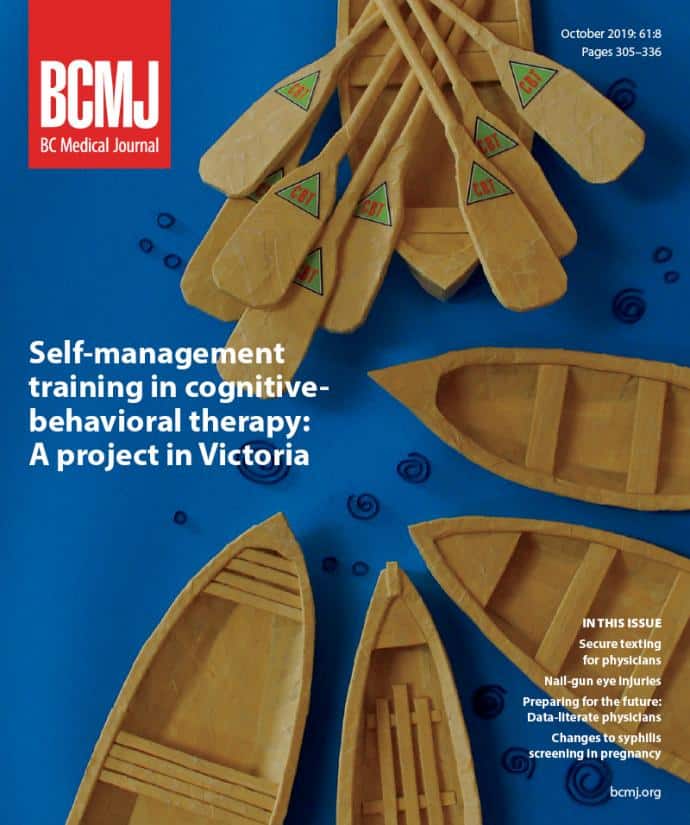Evidence for CBT Skills Groups
Cognitive Behavioural Therapy (CBT) has been extensively researched in a wide range of psychiatric disorders, in both individual and group settings. Learn more below.
Do CBT Skills work?
In a broad summary of the literature (Butler et al., 2006), CBT was found to be an effective treatment for depression, general anxiety disorder, panic disorder, social phobia, post-traumatic stress disorder, obsessive compulsive disorder and other disorders. CBT can also improve outcomes when delivered in conjunction with medication, which is especially helpful when depression is more severe. For those who have had depression in the past, participating in CBT can be protective against having a future episode (Segal et al., 2002).
The CBT Skills program is not comprehensive CBT, but rather focuses on the education and skills aspects of CBT. Although we do not have a research program to assess outcomes rigorously, our quality improvement measuring indicates trends that are consistent with what is seen in the literature related to CBT treatments: those with anxiety and depression tend to experience a significant reduction in symptoms. Many participants have found CBT beneficial for managing mental health, as a stand-alone treatment, or in conjunction with medications or individual therapy.
For more information on the outcomes of the CBT Skills Program as assessed from 2015-2018, see this article in the BCMJ article.
Provincial Quarterly Reports
Reichert & Associates, in partnership with the CBT Skills Groups Society and UBC-CPD, produces quarterly reports that outlines the project outcomes. If you have any questions about the evaluation of this initiative or these reports, please contact Lisa Demers.
Read the BCMJ article on the Effectiveness and accessibility of virtual Cognitive Behavioural Therapy Skills Group medical visits during COVID-19
Read the BCMJ article on the success of the CBT Skills Program and find out how it could benefit you and your patients.




